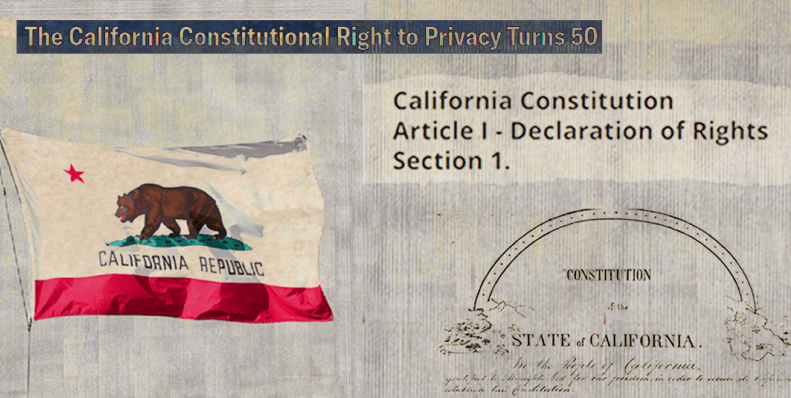
California Constitutional Right to Privacy
Life, liberty, and privacy. These inalienable rights are enshrined in Article I, Section 1 of the California Constitution. In 1972, with support from the ACLU in California, a modern constitutional right to privacy was added to the state constitution through a prescient ballot measure. And for the last five decades, it has helped safeguard our homes, our families, our bodies, our thoughts, and our associations from invasion by government and corporate interests.
Article I, Section 1 of the California Constitution applies to both government and private entities. It was specifically designed to preserve our private lives and fundamental rights in the face of technological advances. Indeed, in drafting the ballot measure, the authors were explicit that the measure's “moving force” was to protect against the “modern threat to personal privacy.” The ballot measure also clarified that the inalienable rights listed in Article I, Section 1, applied to everyone, replacing the word, “men,” with “people.”
For more than fifty years, California's right to privacy has been a north-star for our work on cutting edge laws—from consumer protections that require businesses to provide people with privacy policies, data-breach notifications, and the right to know about and delete the information being collected on them—to anti-surveillance laws that require the government get a warrant to access our personal information and that protect against face surveillance and other dangerous technology. It has also been vital in landmark litigation to protect personal privacy, free speech, and bodily autonomy.
Today, Article I, Section 1 is more important than ever. In a digital world, our freedom depends on our ability to control how our personal information is collected and used. Privacy rights have also become even more salient given rapid advances in AI technology and recent U.S. Supreme Court decisions and the passage of anti-abortion and anti-LGBTQ laws in many states. Now is the time to make sure the promise of the California constitutional right to privacy becomes a lived reality.
The ACLU in California has led much of this litigation and participated as amicus in many important cases.
Since its adoption, California's constitutional right to privacy has been used in the court to protect abortion rights, stop the government from infiltrating and spying on activists, challenge indiscriminate body searches, and protect LGBTQ youth, among other cases. The ACLU in California has led much of this litigation.
Berkeley Law Symposium - California Constitutional Privacy at 50: Power of State Law and Promoting Racial Justice in the Digital Age
Over 200 leading academics and practitioners came together on October 27, 2023 for a historic symposium exploring the landscape of California’s constitutional right to privacy at age 50, highlighting how the right is currently used to promote racial justice and other social progress, and discussing new creative and intersectional uses of state constitutional rights to privacy to defend and promote justice in the digital age.
The ACLU of Northern California Technology and Civil Liberties Program was pleased to help the Berkeley Technology Law Journal organize this important event.
Complementary blogs and articles are online now, including:
The importance of state law and constitutions to protect and promote rights has become even more salient given the reality of a United States Supreme Court that is increasingly hostile to privacy and other civil rights. As we face a period of both critical social justice fights ad rapid technological change, now is the time to ensure that the California constitutional right to privacy is widely understood and to fight for it to be used as robustly as intended to defend and advance rights, justice, and democracy in the technology age.
Not Just Bodies and Homes: Autonomy Privacy Under Article I, Section 1
Recordings from the full day of panels are available at:
https://www.law.berkeley.edu/research/bclt/bcltevents/4th-annual-btlj-bclt-fall-symposium/
More reading:
- Read more about the California Constitutional Right to Privacy at 50 and our longtime work at the ACLU of Northern California to make these rights real: https://www.aclunc.org/blog/california-constitutional-right-privacy-turns-50-our-longtime-work-make-rights-real
